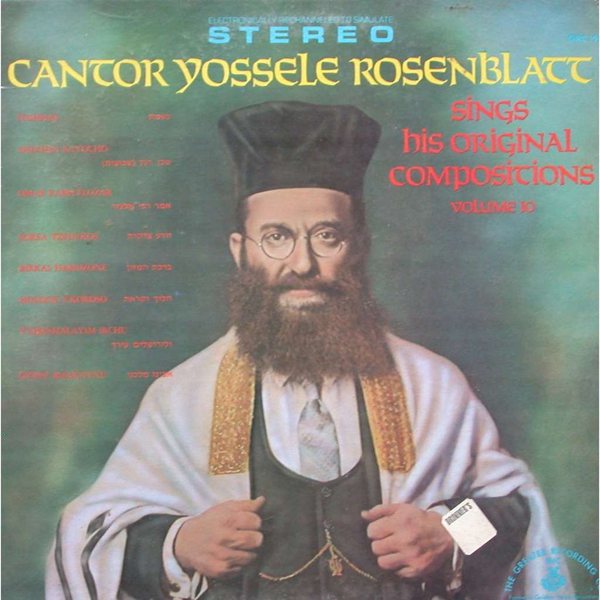There is a unique role in synagogues. Someone is responsible to lead the congregation to chant the prayers. This role doesn’t belong to a rabbi, instead, there is a someone like a worship leader called “cantor” (חַזָּן Hazzan, Chazan).
Prayers are not simply said, instead many of them follow ancient Hebrew melodies. Jewish kids learn such tones from their parents. It’s not hard to understand as we read in the Bible
For the music director, on stringed instruments, a psalm of David.
Yes, prayers and psalms are meant to be sung. However not everyone can sing. Cantor is a unique role that only someone is professionally trained in music and theology can lead.
I learned about the role “cantor” in the Jewish Museum in Vienna. When Viennese Jews received permission to build a synagogue, the community hired a cantor from other Jewish communities. It’s not hard to understand how this is an important role, and even why a cantor is sometimes more popular than a rabbi.
The Origin of a Cantor
Many Jews didn’t know how to pray in Talmudic era, that is 600BC to 100BC. Therefore Jews who were familiar with rituals would lead the prayer, and everyone else would respond “amen!”. This system stayed, even after people started to have prayer books (siddur).
Cantor was not called a cantor. The original name was חַזָּן (Hazzan, Chazan). A hazzan makes sure the congregation knows the rituals and prayers. He doesn’t need to be a gsinger. I read it from some source that in Mishanah he is called someone coming down from Aron Hakodesh (where Torah scrolls are kept). In some historical articles they are called Shaliach Tzibbur, the messenger of the community. Shailach Tzibbur becomes “Schatz” in short, and is used as a last name.
How did a Hazzan get to be called a cantor? It’s a modern terminology, probably because there is also a “cantor” in a church, and that’s what this role is called. Nowadays, a hazzan or a cantor is a seen as a professional clergy. One must go to a proper Jewish theological school and he needs to receive training in faith, music and education.
Who can be a Hazzan?
According to the 16th century Jewish law, you must meet these requirements:
- Do not have sins
- Do not have bad reputation in a young age
- Modest and accepted in the community
- Has a good voice
- Devoted and understands the Bible
- At least 13 years old. Male
- Have a mature look, a flowing beard is better
What does a Cantor do in Modern Days?
The original role of a Hazan is to lead the congrgation to pray and praise God with voice. Now a cantor also needs to teach kids younger than 13 years old how to chant the prayers used on Shabbat and their Bar Mitzvah. A cantor acts as a deputy rabbi for the “caring” work, for example, leading a wedding ceremony, funeral or visiting families.
Is a Cantor Salaried?
Yes. The salary range of a cantor is from $80,000~ $90,000. But it can be even $150,000! Extra stipends might be available at some synagogues.
The Most Famous Cantor
The Ukrain born cantor, Yossele Rosenblatt(1882-1933). He was the best cantor in his time.
https://www.youtube.com/watch?v=dwxXdb8zU9c
My Favorite Cantor Azi Schwartz
The reason I wrote this article was because this cantor inspired me on Youtube. This is a Bat-Mitzvah (the girl’s version of Bar Mitzvah) in a Reformed Synagogue. The cantor at Park Avenue Synagogue, Azi Schawartz sang the ancient prayer Adon Olam in Hamilton’s tone. He has a unique talent, and you could listen to his voice again and again…
When 3 cantors sing together, it’s a world-class concert! They sang the songs for Passover.
There is another special cantor worth mentioning at the Central Syngogue in Manhatten. There is a female cantor! This is not typical! Her name is Angela Buchdahl, graduated from Yale. She has both Jewish and Korean roots. And she is a rabbi and a cantor at the same time. Orthodox Jews won’t allow a woman to take such role though, but in my opinion, I think she is brave, smart, gentle and talented.
References
https://www.myjewishlearning.com/article/the-cantor/





